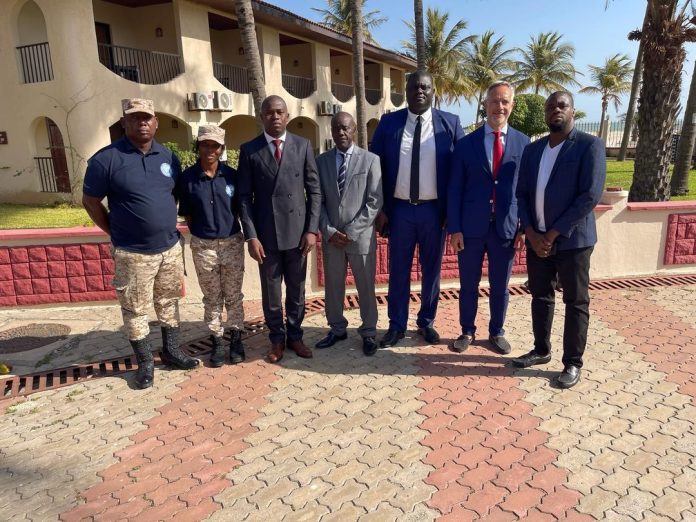By Nelson Manneh
Security officers from different security agencies in the country, on Monday, 14 April 2025 commenced week-long training on vessel rummaging.
Vessel rummaging, also known as ship rummaging, refers to the practice of thoroughly searching a ship or vessel for illegal or smuggled goods by moving and re-arranging cargo and goods to uncover concealed items. The practice is a form of inspection where authorities, such as customs officers, meticulously examine a vessel to identify hidden or undeclared items like drugs, weapons, or contraband goods.
According to Mr. Demba Ceesay, the Director of the Drug Law Enforcement Agency, it is common knowledge that criminals are constantly changing their modus operandi and using advanced, sophisticated, clandestine methods to get their illicit products to targeted markets.
He said it is evident that the more law enforcement entities and relevant stakeholders get more organized, build their capacities, and synergise their efforts, the more criminal networks do the same and try to outdo them.
“This means that we must never rest on our laurels but should ensure that we continue to double our efforts and constantly be on guard. The Joint Maritime Control Unit (JMCU) which you people have been selected to serve comes within the framework of the Seaport Cooperation Project (SEACOP),” Mr. Ceesay said.
Mr. Ceesay said the SEACOP project enshrined in the MOU between the Gambia government under the auspices of the Ministry of the Interior and Expertise Francaise covers more than thirty countries in Latin America, the Caribbean, and West Africa. He said the project aims to support countries by building their capacities in the mitigation of threats associated with port and illicit maritime trafficking through the creation or strengthening of inter-agency joint operations. The key goal of the initiative, he said, is to understand the evolving trends and routes of cocaine trafficking and related international organized crime.
Mr. Ceesay outlined that the project also aims to strengthen inter-agency collaboration with a view to address the gaps and challenges associated with making their seas and maritime borders safe from illicit activities.
Ms. Immaculada Roca i Cortés, the European Union Delegation to The Gambia, said that according to the latest UNODC World Cocaine Report, Africa plays a more prominent role as a transit zone for cocaine trafficking. She said the Gulf of Guinea, including The Gambia, is experiencing a rise in maritime smuggling, as vessels are being used to transport a wide range of illegal goods from drugs and timber to counterfeit medicines and arms, which is posing serious threats to governance, safety, and stability. She outlined that one of the most important illicit flow routes through the Atlantic Ocean stretches from Latin America to Europe, via the Caribbean and West Africa.
“As criminal networks constantly adapt their methods, resources and transport routes, it is important to target all affected regions at the same time and to anticipate displacement effects of targeted areas. We are collectively facing a global threat that impacts countries at all points along trafficking routes, whether as points of origin, transit, or destination. The Gambia, like other West African countries, is not only affected as a transit zone, but is also exposed to the broader implications that these activities have on her national and regional security,” she stated.
She said the European Union remains committed to partnering with the Government through initiatives such as SEACOP, which supports efforts in West Africa, Latin America, and the Caribbean, adding that SEACOP actively fights illicit maritime trafficking and associated criminal networks.


















